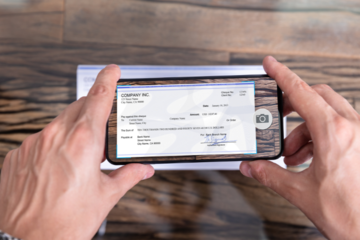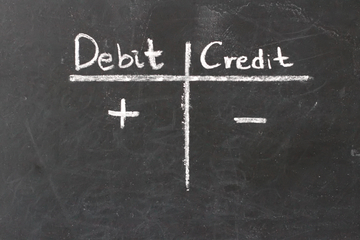The federal government offers a range of grants to help individuals and families. Many people may need extra help paying energy bills, such as electricity bills, college-related expenses, or healthcare. There are a number of government hardship grants that provide fast cash. These grants can provide you peace of mind that you are able to pay for food, utility bills, housing, and other daily expenses.
What is a Hardship Grant?
Hardship grants are benefits given to a person who may need financial help. The grants are offered by states, local governments, nonprofits, colleges, and other organizations.
Government hardship grants usually fall within five categories: food, housing, medical, education, and family assistance. People may find several program benefits within each of these categories that they may be eligible for based on their personal information and income factors. Each program may have its own criteria to meet for an applicant to be accepted. Keep in mind that only some programs provide cash directly to individuals. Others help lower bills by providing the grant money directly to energy companies, medical insurance companies, and other organizations as the benefits are seen directly on your bill’s statements.
Always keep in mind that a hardship grant vastly differs from a quick cash loan. A grant does not usually require that an individual or family repay the money they receive.
How Do I Apply for a Hardship Grant?
Applying for a hardship grant is based on the terms, conditions, and requirements established by the organization offering the program. Typically, the program or organization has an application process that asks for your personal information, income information, and other details. The application process also asks to see copies of identifying information, such as a driver’s license or social security number, to identify who you are and verify where you live.
Some government hardship benefit programs require an application to be submitted and renewed in person. Other programs allow for the application to be completed and submitted online. An online application may be submitted through a local or state government website, the organization’s website offering programs, or a university’s website if the grant is for educational use.
When filling out an application, providing accurate and truthful information is essential for acceptance. These programs may also require that you update your information periodically if your income or housing circumstances may change. The timeline on when the application may become accepted can vary based on the program and the amount of information that must be verified by the organization.
What Qualifies as Financial Hardship?
Financial hardship may apply to an individual who is having a difficult time paying utility bills or purchasing food. A person unable to afford medical care or housing could also be experiencing financial hardship. Financial hardship does not normally apply to individuals earning a high or average income.
Financial hardship also applies to people who have experienced an unexpected setback or disaster that impacted them. Someone who has experienced a fire, flood, tornado, or earthquake that destroys their home or prevents them from working could qualify for financial hardship assistance. People who are disabled, who are an active military member, or who have a family member in the armed forces could also qualify for financial hardship grants.
Seniors may also go through a financial hardship if they cannot afford to buy food for themselves. They may not have enough money, or they must choose between purchasing food, bills, housing, or prescription medication. Some nonprofits that assist the elderly, deliver meals to the person’s home. Organizations also offer transportation to seniors who require a vehicle to get to a doctor’s appointment or when the senior wants to run errands, such as going to the bank.
Ways Government Hardship Grants Can Help Through Financial Hardship
Government hardship grants help fund programs that provide support, financial assistance, and other services to people in need.
When it comes to hardship grants that provide fast cash, many programs offer benefit cards that allow individuals to access their funds. On a monthly basis, more funds are added onto the benefit card. In other circumstances, the funds are applied to a bill automatically which then lowers the total amount owed for the individual.
Types of Federal Hardship Grants
The following hardship grants may offer food, cash, or funding for medical, housing, and educational expenses. Depending on your circumstances, you may apply to one or several programs.
Medicaid/CHIP
Medicaid and CHIP are medical assistance programs designed to help lower healthcare costs to individuals and families. Programs that fall under these medical assistance programs may be age based, as children under the age of 18 would qualify for the CHIP program. Teens over the age of 18 and adults would qualify for the Medicaid program.
Temporary Assistance of Needy Families
Temporary Assistance of Needy Families, also called TANF, offers a wide range of benefit programs for individuals and families. These programs may include WIC, SNAP, cash assistance, transportation subsidies, medical programs, and utility coverage. A person may also qualify for other programs that fall under the TANF, such as job training and childcare.
Unemployment Assistance
Unemployment assistance is available for people who lose their job through no fault of their own. The person may receive a portion of their previous wages. The money may be used as cash while the person actively pursues a new job.
WIC
The Women, Infants, and Children (WIC) program is a special supplemental nutrition program designed to offer food assistance to families. It helps mothers with young children gain the healthy food they need. The program is short term.
SNAP
The Supplemental Nutrition Assistance Program (SNAP) offers cash benefits to individuals and families so that they may purchase groceries at supermarkets and farmer’s markets. Some people may refer to SNAP as welfare or simply cash assistance.
Commodity Supplemental Food Program
The Commodity Supplemental Food Program provides healthy food packages to seniors. These packages are sent to them on a monthly basis.
Housing Voucher Program
The housing Voucher Program offers financial assistance so that people can pay for their rental housing. The program, also called Section 8, helps pay for a portion of the rental payments so that a person can afford the remainder of the rent.
Public Housing
Public housing programs do not provide any cash benefits. Instead, these programs may offer apartments or houses to senior citizens, low-income families, or people who have disabilities. The rental apartments or houses are state owned.
LIHEAP
The Low Income Energy Assistance Program (LIHEAP) is geared toward helping individuals and families pay for their heating and cooling bills. The program may also help people renovate their homes and make improvements at low costs to help decrease their energy usage.
Supplemental Security Program
The Supplemental Security Program, or SSI, is designed for senior citizens and people with disabilities. This program provides cash assistance to help people pay for groceries, medicines, and other daily items.
Military Benefits
Military members, family of military members, or widows may qualify for a wide range of benefits funded by federal government grants. Offered through the Department of Veteran’s Affairs, the benefits may offer housing, work training, child assistance, healthcare, education assistance, financial support, and many other services.
Federal Supplemental Educational Opportunity Grants
The Federal Supplemental Educational Opportunity Grant (FSEOG) provides a specified amount of grant money to schools and universities. These educational institutions then offer funding ranging from $100 to $4,000 to students who are in financial need.
Federal Pell Grants
Federal Pell grants are for undergraduate students who are in exceptional financial need. Students may obtain funding when they have not obtained their bachelor’s degree, graduate degree, or professional degree.
Teacher Education Assistance for College and Higher Education Grants
The Teacher Education Assistance for College and Higher Education Grants (TEACH) provides grants to people who are pursuing a teaching career. A person must agree to fulfill a teaching service obligation to become eligible for this grant.
Iraq and Afghanistan Service Grants
The Iraq and Afghanistan Service Grants offers education funding for people who may have had a parent or guardian who died in military service in Afghanistan or Iraq. People who are eligible for PELL grants under those requirements but who are unable to obtain one due to the Expected Family Obligation may be able to receive these service grants.
Do You Have to Pay Back Hardship Grant Money from the Government?
A grant recipient does not typically have to repay the government or an organization that is receiving the grant money directly from state or local governments that will go toward food, housing, education, or financial assistance. However, there are circumstances where a person may have to return a portion or all of the funds that went to their expenses.
In the case where you are getting help with food, housing, or financial assistance, you may have to repay the grant if it is discovered that you made deliberate false statements regarding your personal information or any claimed hardship when you are not truly experiencing any type of need. You may receive a penalty as well as have criminal actions taken against you.
For people receiving unemployment assistance, there may be rare occasions where you receive an overpayment of cash benefits. That overpayment must be returned to the government immediately.
In cases for grants giving for educational expenses, if a person withdraws from the educational program that the grant was paying for, or they received scholarships/grants from other sources, they may have to make a partial or full grant repayment. Other circumstances causing repayment or grants may involve not meeting service obligations, such is the case for the TEACH grant, or your enrollment status changes to where your eligibility for the grant is reduced.
If Yes, How Long Do You Have to Pay It Back?
Grant repayment terms are based on the specific program. For overpayment on unemployment assistance, the government expects payment immediately. If a person fails to make the repayment, the government may place a lien on personal assets or garnish income tax refunds.
For educational grant repayments, a person may have the grant changed into a direct unsubsidized loan. A person who must repay a grant may be given 45 days to make payment or to make satisfactory repayment arrangements.
Integra Loans: Online Personal Lender
At Integra Credit, we offer a range of loan options for people who may need the funding to pay for bills, emergencies, renovations, medical expenses, or other items. These loans may be an alternative solution for people who do not qualify for government hardship grants due to their income yet still require a temporary loan to help with their finances. To learn more about your loan options, contact us today.
Sources
https://www.creditninja.com/17-hardship-grants-to-provide-you-with-fast-cash
https://www.creditkarma.com/advice/i/government-hardship-grants


